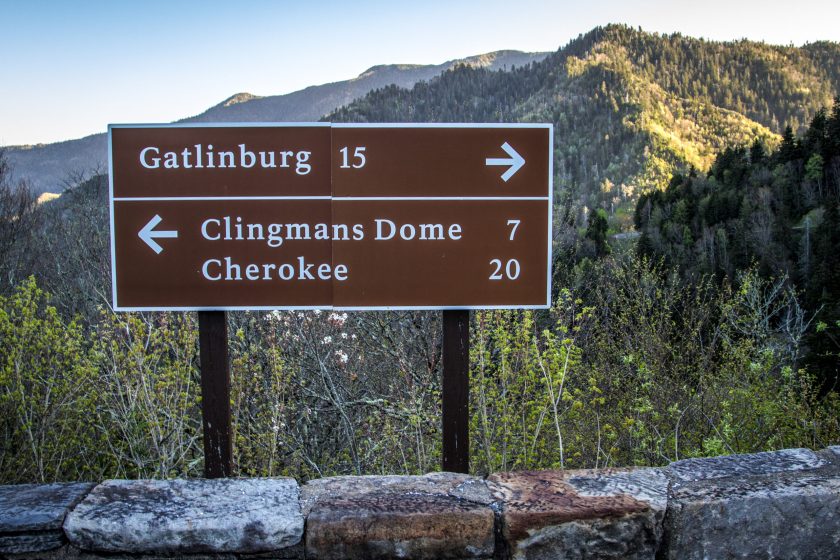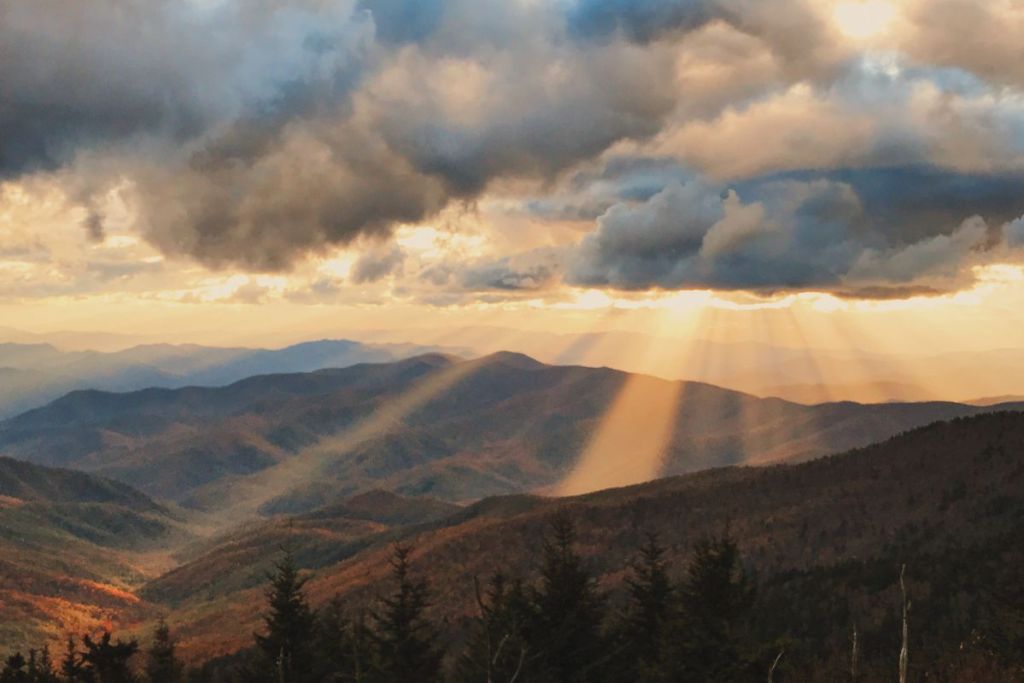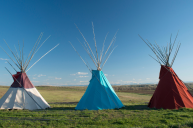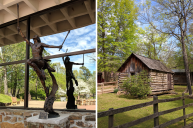Clingmans Dome, the highest peak in Great Smoky Mountains National Park, was once a sacred place for the Indigenous people in the area. The Eastern Band of Cherokee Indians Tribal Council have passed a resolution supporting the restoration of the mountain's original name "Kuwahi," hoping to honor the history of the Cherokee people. Lavita Hill, the tribe's treasury specialist, has been preparing the name change proposal for approval with fellow activist Mary Crowe and told NPR that she was inspired when Yellowstone National Park's Mount Doane was renamed "First Peoples Mountain" because of the former name's ties to the military general who massacred the Piegan Blackfeet Tribe.
History of Clingmans Dome

ehrlif via Getty Images
Located on the Tennessee-North Carolina border about 22 miles from Gatlinburg, Clingsman Dome stands at 6,643 feet, making it the highest point in the Smokies. The name change resolution details how the Cherokee called the sacred mountain Kuwahi, which means "mulberry place," and it was where tribal medicine people would go to pray and seek guidance from "the Creator" for their community. When the Cherokees were forced to relocate to Oklahoma on the Trail of Tears in 1838, some were able to hide in the forests surrounding Kuwahi while nearly 4,000 others died during the removal. Hill told USA Today, "We're here today because our ancestors hid in those mountains, specifically in Kuwahi," and also explained to NPR, "It's not like we just occupied the land, we lived on the land. Our own government, towns, language, our own newspaper; we were thriving communities. Then, due to forced removal, we were forced out of our homelands."
In 1876, the Cherokee who remained purchased 57,000 acres of property in western North Carolina known as the Qualla Boundary which is adjacent to Great Smoky Mountain National Park. But in 1859, geographer and professor Arnold Henry Guyot had named Kuwahi "Clingmans Dome" after Thomas Lanier Clingman, a North Carolina senator and Confederate general who had no ties to the area or the people. "Naming the mountain after [Clingman] sort of strips down all of the history of the Cherokee people," Hill said to USA Today. "It undermines everything that our people are in order to rename it after someone with zero ties to our community. He didn't even live here."
The Cherokee Council's proposal read, "the history of renaming Kuwahi ... to 'Clingman's Dome' shows that the name of Clingman was designated by a proponent of scientific racism (Guyot) on behalf of an avowed racist (Clingman), in an action that was disrespectful to Cherokee people, culture, history, and tradition," further explaining how Clingman was known for his clear support for slavery, even getting expelled from Congress after expressing his support for the Confederacy during the Civil War. It also expanded on Guyot's support for scientific racism, mentioning his published writings that connect "continent locations, topography, and climate to the superiority of certain races."
The Resolution

RichVintage via Getty Images
The name change proposal is only the beginning. The next step is submitting the paperwork to the U.S. Board on Geographic Names for Consideration, and Hill hopes to have it done by the end of 2022. The call for change follows the establishment of the Derogatory Geographic Names Task Force by U.S. Department of the Interior's Secretary Deb Haaland and the efforts recently made to "engage with tribes to correct the naming of sacred and reverent places back to their historically appropriate names."
This resolution explains that although "the name Clingman is not derogatory in and of itself... the history shows the act of changing the name of Kuwahi to 'Clingman's Dome' was racist and that the racist action should be acknowledged and corrected."




